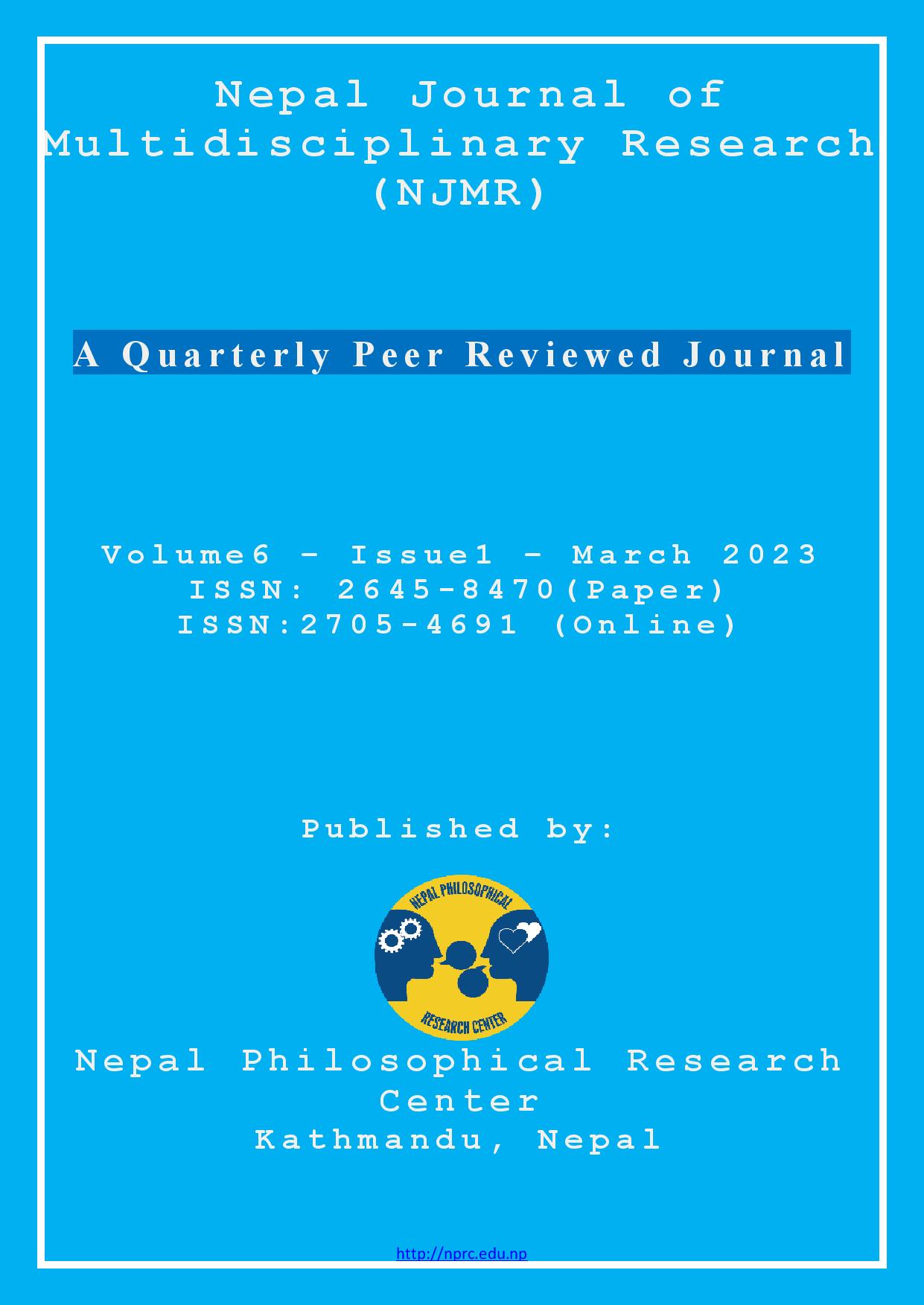An Evaluation of Inequality of Enterprising Women in Developing Countries: A Case Study of Nepal
DOI:
https://doi.org/10.3126/njmr.v6i1.54285Keywords:
Affirmative action, Gender equality, representation, discrimination, reservation systemAbstract
This study aims to analyze the existence of gender inequality in Nepalese society and the response of the government towards it through policy documents. It also explores the changing scenario of women representation in the political and public sector because of the government policies. This research provides a critical review of the government policies and social practices regarding affirmative action and gender equality in Nepal. This research further unravels the systematic review of policy documents and future insight into government policies to enhance the position of women in public sector employment.
This research is based on secondary data and a descriptive method has been adopted to show the status of women in Nepal. Secondary data were taken from the academic published articles and policy documents of the Government of Nepal. This research has found that the Government of Nepal has taken up aggressive steps to ensure gender equality in each sector by increasing representation of women. The latest constitution of Nepal, 2007 and the second amendment of Civil Service Act, 1993 are the key policy documents from which, women representation in public sector has been increasing marvelously. Hence, the country has been moving towards gender equality and has impacted positively on society. It could be an example for other developing countries as well.
Downloads
Downloads
Published
How to Cite
Issue
Section
License
Copyright (c) 2023 Rita Lamsal, Denis Hyams-SSekasi

This work is licensed under a Creative Commons Attribution-NonCommercial 4.0 International License.
This license enables reusers to distribute, remix, adapt, and build upon the material in any medium or format for noncommercial purposes only, and only so long as attribution is given to the creator.




